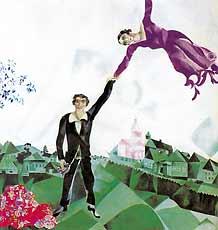Başlığı biraz şaşırtmacalı yazmak istedim aslında ama nereye kadar… Neyse, zaten her halikarda bu giriş kitaplar ve onları okuma alışkanlıklarım üzerine olacak. Başlayalım bakalım.
Kendimi bildim bileli kitap okuyorum diyemem. Tamam, hayatımın her döneminde kitap okumuşluğum vardır ama yoğun bir şekilde, hastalık derecesinde okumaya başlamam orta 3 – lise 1 dönemlerine rastlar, uzunca bir hikayesi vardır, yani öyle bir gün bir gün bir çocuk kütüphaneye girmiş, kimse yok durumları pek yok – hikayeli mikayeli bir şey (bu benimkisi).
İstanbul’da ulaşım uzun zaman süren bir şeydi. Evden okula giden yollarda nice kitabı okuyup bitirmişliğim vardır. Hatta bunlarla ilgili anılarım da vasıtanın o anki lokasyonu ile hatırlanır. Mesela Dragonlance Chronicles Bakırköy otobüsü (85 miydi numarası?) Mecidiyeköy durağına yanaşırken bitmiştir, Ernesto Sabato’nun Tünel’i ile Jean-Paul Sartre’ın Hürriyet’in Yolları da Taksim – Bakırköy otobüsü, kalkış durağı olan eski Elektrik Kurumu binasının oradan Tarlabaşı’na dönerken, Üstündağ Otomotiv vardır, işte tam orada okunmaya başlanmıştır. Hakikaten, şimdi düşünüyorum da öyle böyle değil, epeyce kitap devirdim tekerler üzerinde. İstanbul’dan sonra Ankara tabii ulaşım açısından daha kolay olunca hayli azalttı kitap okuma seanslarımın verimliliğini ama özellikle serviste yine pek çok kitabı haklamaya muvaffak oldum.
Delft’te ise okulun evimize (çok şükür) sadece 6 dakika bisiklet pedalı çevirme mesafesinde olduğu gerçeği, benim bir şeyler okuma ihtimalimi hayli sekteye uğratmakta.
Dune serisini öteden beri bilirim. İlkin Cryo’nun o muhteşem oyunu ile girmişti hayatıma, sonra Lynch’in filmini de seyredip, o manasız Kyle MacLachlan’a rağmen sevmiş idim. İş kitabını okumaya gelince yalnız (sene 1993) bayıp, şu Maples’ın ilk göründüğü sahneden daha ileri gidememiştim. Araplara aşırı bir düşkünlüğüm olduğu pek söylenemez. Hele Luke Skywalker’dan daha altın bir çocuğun kurtarıcı rolüne bürünmesi pek de kafamdaki şeyle örtüşmüyor. Oyun olarak çok iyiydi, filmi de o sıralar herhalde anlamamış olacağım alt okumalarla gizlice de olsa besleyiciydi ama kitap. Neyse.
En son Damlanur beni kitaba bir şans daha vermeye zorladı ve kitaba uçak Türkiye semalarından Hollanda semalarına doğru yol alırken başlamaya karar verdim. Tarih: 30 Eylül 2007!
Uçakta epey bir kısmını okudum. Benim FBReader ayarlarımla 581 sayfa. Bu 581 sayfayı 20 Ocak tarihinde bitirebildim (kitabı sevmeme rağmen). Sayıyoruz: YAKLAŞIK 4 AY!!! Nedir bunun sebebi? Yol(culuk) yok! Kitabı okuyabildiğim yegane zaman/mekan (you must have pretty guessed by now.. 8P)
Salı ve çarşamba günleri Eindhoven’da Fizik Konferansı vardı. Eindhoven buraya 2.5 saat mesafede. Oraya giderken ikinci kitaba başladım (Dune Messiah). Yine FBReader’ın mevcut ayarlarıyla 217 sayfa ve çarşamba akşamı eve döndüğümde 160 sayfasını devirmiştim bile.
(iki kitap için konuşuyorum) Öyle çok beğendiğimi söyleyemeyeceğim, değişik bir tat olmuş ama ı-ıh. Sevebileceğim bir karakter olmayışı bundaki en büyük etken. Bir de tabii über-mensch Paul Efendi (ve Mahdumları) olayı var. Roland Barthes’ın Genç Werther için alıntıladığı şu (who?) eleştirmen misali, Paul her “böhü böhü şimdi geri çekilemem cihad olur, kendimi öldürsem bile cihad olur, ay bunu böyle yapsam cihad olur, baktım cihad oldu bakmadım cihad oldu…” diye ağladıkça kafasına kafasına vurasım geldi. E ikinci kitapta görüyoruz ne olduğunu, kastın o kadar, bak şimdi ne oldu. Ulen emperetör yapmışlar seni daha hala ağlıyon seni çöl sıçanı. (atlayıver muaddib, zıplayıver muaddib, bidi bidi bidi muaddib). Yani, OK, power play, iktidar mücadelesi sci-fi’lerde pek de başarıyla ele alınan bir konu değil, daha çok geroge arkın the man who saves the world bakış açısı baskın (baskıl oral) ama bu alemin bir zekisi sen değilsin ki! Shaddam da düşünmüştür herhalde vaktiyle senin şimdi ikinci kitapta ağlak ağlak muhabbetini yaptığın şeyleri. Bir de “Mystery Man” diye sevdiğim bir film vardır. Orada alışılagelmişin dışında güçleri olan tipler vardır, bunların biri de görünmez olur – ama ancak kimse onu izlemiyorsa. Bizim Muaddiboş’un prescience yeteneği de böyle bir şey. “Muaddib geleceği görüyor musun?” “Görüyom abi, hayırdır?” “Bi’ bakar mısın, yengen akşama ne pişiriyor, balıksa rakı alacağım…” “Ya abicim, ben şimdi geleceği görüyorum ama farklı bir şekilde, yani birinde yenge balık yapmış, palamut, diğerinde naib bayıldı, aha şunda da Shai Hulud yahnisi var…” “Abi yormayayım ben seni, saygılar.”
Bir de nedir bütün Sci-Ficilerin bu asalet ve dahi ordu düşkünlüğü ya! Bayıyor, bilesiniz. Nerede Culture nerede bu sıpalar! Haydi Heinlein yapsa tamam diyeceğim ama o bile yapmıyor bu kadarını.
Bu sevgi(!) dolu girişi hastası olduğum bir kitap özeti ile bitireceğim. Belki Orson Scott Card’ın “Ender’s Game”ini okumuşluğunuz vardır (yoksa okumayınız), hem Hugo hem de Nebula kazanan kitaplardandır. Salak bir kitaptır yalnız, okumayın, değmez, hatta okumayın diye hemen şimdi spoil edip sonundaki twist’i söyleyip sizi büyük bir sıkıntıdan kurtaracağım : Aslında Bruce Willis de ölü! Ha ha! Korktunuz, değil mi harbiden söyleyeceğim diye, sizi sizi! 8) (Ender aslında savaşa hazırlanmıyor, o oynattıkları oyunlar oyun değil, bizzat gerçek savaşlar) Ender’in koyunu sonra çıkar oyunu. Neyse, dediğim gibi gelelim günün eğlencesine: birazdan alıntılayacağım kitap özetini Wiki’den apartıyorum. Tamam, yazan da epey bir sadeleştirme yapmış ama Ender’in Oyunu’nu okumuş biri olarak, biliyorum ki “aslına sadık” olmalı bu özet, Allah rızası için okuyunuz şunu:

 If you hate me after what I say
If you hate me after what I say